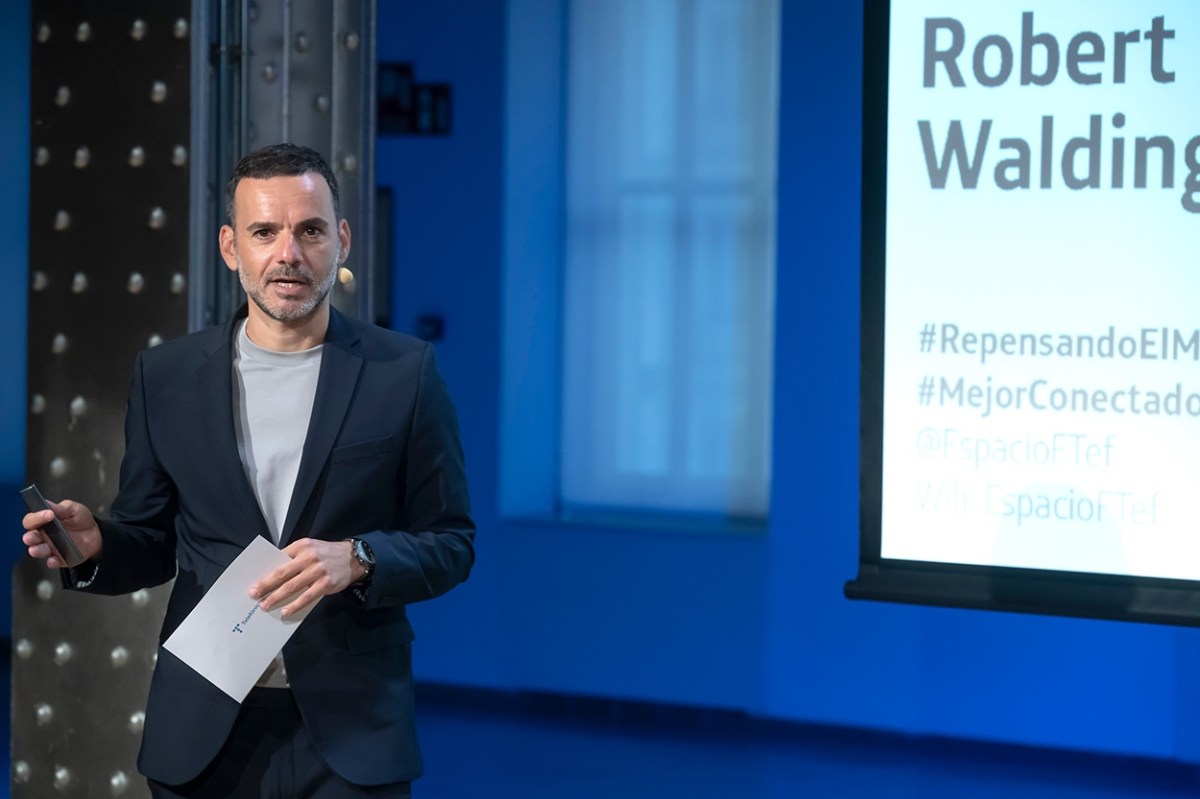Telefónica’s purpose of Making our world more human by connecting people’s lives came into being as a result of the reflection that it’s people who are important, as they really give meaning to technology. Placing the individual centre stage and technology as the context entails acknowledging our long history in the business of connectivity, based on the conviction that what’s truly important is fostering human connections as primary sources of well-being and happiness. Promoting something as human as our need to connect with other individuals confers a relevance on our purpose that few companies can boast.
There is scant scientific evidence to demonstrate the significant benefits of interpersonal relationships for human beings. Without a doubt, one of the best and most renowned works is directed by Robert Waldinger, the great American psychiatrist. Thanks to the Harvard Study of Adult Development, based on 80 years’ analysis of the physical and mental health of more than 720 men (which is now continuing with their wives and children), it’s been possible to prove the positive effect of good personal relationships on our happiness and physical health. The study debunks the myths related to fame and wealth as sources of happiness and provides two main lessons, that loneliness reduces life expectancy and that the quality of our relationships is important because it will determine our health.
It was precisely the conviction of the importance of our purpose that encouraged Telefónica to conduct the study titled The importance of human connections. It involved qualitative and quantitative research conducted in Spain among people aged 18 to 72 from different regions in which we explored their attitudes towards human relationships, including the importance and kinds of personal relationships, the characteristics of quality relationships and the role of technology as an enabler. The research corroborates some of Professor Waldinger’s findings and helps us to enhance our understanding of our purpose:
- For Spaniards human relations are the oxygen of everyday life, while loneliness is regarded as a synonym of torture. 81% of the respondents state that personal relationships are fundamental in their lives, acknowledging that they meet a wide range of needs related to the physiological, psychological and social dimensions.
- Life is like a road movie in which there appear characters making up different relational groups that can be classified in keeping with the intimacy and length of the relationship. According to 87% of the respondents, their family of origin and the one consisting of their partner and children are by far the most important relationships. But this importance varies, depending on the individual’s vital moment, as families of origin and even close friends are regarded as more important in the early years of life, giving way to the person’s own family as he/she gets older.
- Spaniards are convinced that quantity isn’t the same as quality in terms of personal relationships. 86% of them state that they’re quite or very selective when it comes to building circles of relationships and 60% say they have between one and four quality relationships. Among those under 35 years of age, close friends stand out as quality relationships, while partners and children are more important among Spaniards aged between 36 and 65.
- 76% of the respondents declare that trust is a prerequisite for the establishment of personal relationships. Across the board for all ages, trust and respect are once again two of the three main characteristics any quality relationship should have.
- Technology acts as a multiplier of the options for feeling connected with other people. 69% of the Spaniards interviewed believe that technologies can help them to maintain quality relationships and 59% think that social media play a quite or very important role in them. These percentages fall as the respondent’s age increases, but even more than half the respondents aged 51-65 believe this to be the case.
- Although the study was conducted between February and March 2020, the experiences undergone during the pandemic are still strongly reflected in the replies of the participants in the study. A large number of them are now more aware of how essential relationships are and how important it is to be connected. Many of the older participants regard having adopted technological habits such as video calls and instant messaging in order to communicate with their loved ones during the worst months of the pandemic as highly positive.
On 13 September the presentation of the study titled The importance of human connections took place at the Espacio Fundación Telefónica in the company of Robert Waldinger, who attended remotely from Boston. We were able to discuss the significant similarities between the results of the two studies with him and examine the valuable role of technology as an enabler and maintainer of relationships, while he underlined that “the use of technologies influences our well-being”.
Thanks to this reflection and research into personal connections, we’ve realised the relevance of Telefónica’s purpose in society, thus confirming our humanist position with great social transcendence. Unfortunately, since March 2020 and the onset of the pandemic, it’s become even more evident how important connectivity is nowadays for the maintenance of relationships and, in turn, the mental and physical health of citizens. The above is confirmed by the declaration made by our chairman, José María Álvarez-Pallete, namely that “our purpose has never made so much sense”.








